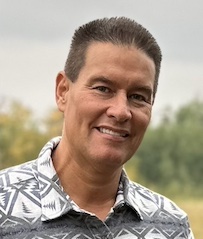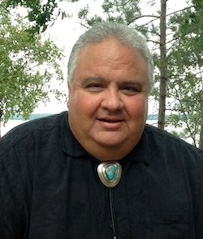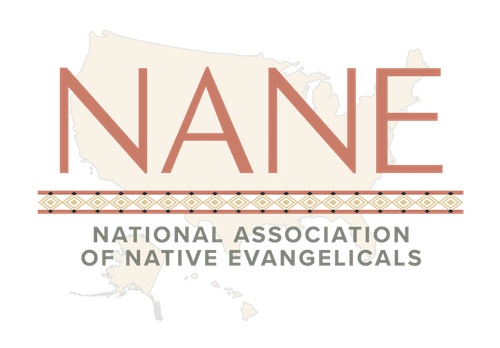About Us
EQUIP UNITE ENCOURAGE

Why Does NANE Exist?
The National Association of Native Evangelicals was started to equip, encourage, and unite the body of Christ in the United States related to Indigenous people and ministry for the glory of God. As Indigenous Christian leaders in the United States, we realize that Indigenous ministry can be difficult, and many Christian workers feel ill-equipped for the work of ministry. Not only that, Christian workers and leaders need to be encouraged. Lastly, God blesses unity among Christ-followers. As a result, NANE was started.
What Does NANE Do?
:: Equip: We provide training for those serving in Indigenous ministry in the United States,so that followers of Christ grow in becoming fruitful and faithful in ministry and life.
:: Encourage: We provide various resources and other support that helps those serving in Indigenous ministry in the United States to be encouraged and to live hope-filled lives.
:: Unite: We provide opportunities for Christ-followers to connect and build relationships for mutual support, collaboration, and fellowship.
Who Does NANE Serve?
We know that many Christian leaders serving Indigenous people are underequipped, isolated, and even discouraged.
NANE provides opportunities for connecting with others and resources for Christian Leaders that will help equip and encourage these Christian workers. Also, NANE offers resources for Indigenous believers to help them grow spiritually.
An identified problem in American society is that the Body of Christ is largely disconnected from Indigenous people and Indigenous ministry. Part of the cause of this is that many reservations are geographically isolated from larger metropolitan areas. Another cause of this problem is that Indigenous people tend to be more silent and a quieter people group. As a result, the Body of Christ has, to a large degree, not heard from Indigenous Christian leaders. Furthermore, there is a lot of misunderstandings and even misjudgments in the Body of Christ about Indigenous people.
NANE helps to solve this problem by creating a list of approved Indigenous speakers who can go into various churches in America to educate and train the Body of Christ about Indigenous people and ministry and to help accomplish the mission of reconciliation.
NANE provides Training Materials for general congregations in the United States, so that believers in general can become more knowledgeable about Indigenous people and ministry and even get involved in Indigenous ministry.
Any Christian person who has an interest in Indigenous Peoples, and/or in Christian Indigenous Ministries.
“NANE provides invaluable training to help followers of Christ grow in fruitful and faithful Indigenous ministry. Crucially, NANE fosters unity by creating opportunities for connection, relationship-building, mutual support, collaboration, and fellowship among those serving in this space.”
Robert De Corah, Native Ministries International

Join NANE
We believe the Bible to be the inspired, the only infallible, authoritative Word of God.
We believe that there is one God, eternally existent in three persons: Father, Son and Holy Spirit.
We believe in the deity of our Lord Jesus Christ, in His virgin birth, in His sinless life, in His miracles, in His vicarious and atoning death through His shed blood, in His bodily resurrection, in His ascension to the right hand of the Father, and in His personal return in power and glory.
We believe that for the salvation of lost and sinful people, regeneration by the Holy Spirit is absolutely essential.
We believe in the present ministry of the Holy Spirit by whose indwelling the Christian is enabled to live a godly life.
We believe in the resurrection of both the saved and the lost; they that are saved unto the resurrection of life and they that are lost unto the resurrection of damnation.
We believe in the spiritual unity of believers in our Lord Jesus Christ.
As adopted by the National Association of Evangelicals.
Indigenous People in the United States
There are 574 federally recognized Indian Nations (variously called tribes, nations, bands, pueblos, communities and native villages) in the United States. Approximately 229 of these ethnically, culturally and linguistically diverse nations are located in Alaska; the other federally recognized tribes are located in 35 other states. Additionally, there are state recognized tribes located throughout the United States recognized by their respective state governments.
A Culture of Tribal Governance
American Indians and Alaska Natives are members of the original Indigenous peoples of North America. Tribal nations have been recognized as sovereign since their first interaction with European settlers. The United States continues to recognize this unique political status and relationship.
A Political Relationship
Native peoples and governments have inherent rights and a political relationship with the U.S. government that does not derive from race or ethnicity. Tribal members are citizens of three sovereigns: their tribe, the United States, and the state in which they reside. They are also individuals in an international context with the rights afforded to any other individual.
Tribes as Nations
The governmental status of tribal nations is at the heart of nearly every issue that touches Indian Country. Tribes have the inherent power to govern all matters involving their members, as well as a range of issues in Indian Country.
The essence of tribal sovereignty is the ability to govern and to protect and enhance the health, safety, and welfare of tribal citizens within tribal territory. Tribal governments maintain the power to determine their own governance structures and enforce laws through police departments and tribal courts. The governments exercise these inherent rights through the development of their distinct forms of government, determining citizenship; establishing civil and criminal laws for their nations; taxing, licensing, regulating, and maintaining and exercising the power to exclude wrongdoers from tribal lands.
In addition, tribal governments are responsible for a broad range of governmental activities on tribal lands, including education, law enforcement, judicial systems, health care, environmental protection, natural resource management, and the development and maintenance of basic infrastructure such as housing, roads, bridges, sewers, public buildings, telecommunications, broadband and electrical services, and solid waste treatment and disposal.
This information is being cited from the National Congress of American Indians website.
Board of Directors

Ryan O'Leary
Ryan is an enrolled member of the Bois Forte Band of Ojibwe in northern Minnesota. Ryan has an extensive leadership background serving tribal people. These roles have included the following: Assistant Executive Director for his tribe's government operations, board member and vice chairman of the board for his tribe's economic development agency for a total of 10 years, a lead pastor for 13 years Including a largely Indigenous church called "Indian Fellowship", Indigenous parachurch ministry leader for 3 years, a tribal college faculty member for 9 years, and has been serving Indigenous people in North America through his missions role for the last 8 years.
Ryan also leads the First Peoples Initiative, a ministry for all First Peoples groups in North America. Ryan holds undergraduate and graduate degrees in business management, a master's of divinity, a doctorate of ministry, and a PhD in Global Leadership degrees. Lastly, along with serving as the President of NANE, Ryan also serves on the board of directors for the National Association of Evangelicals.

Dale Dimitroff
Dale has served on the board of the National Association of Native Evangelicals since its incorporation in March 2023 and has had leadership roles in Native ministries for more than 13 years. He served as a captain in the United States Marine Corps as an attack pilot and retired from Alliant Techsystems/Orbital ATK after 25 years in quality management. He has been the chair of the board for Main Street Family Services since 2019 and served in church leadership roles for more than 30 years. Dale brings skilled leadership, proven business processes, and quality system standards of excellence to the National Association of Native Evangelicals board of directors.
“I am passionate about our mission to unite, equip, and encourage Christians ministering among Indigenous people in the United States. It is a privilege to serve with like-minded people.”

Craig Smith
Craig Stephen Smith serves alongside his wife, LaDonna, in Tribal Rescue Ministries, of which he serves as president. TRM is an evangelistic and apologetic ministry that reaches Indigenous people throughout North America and in over fifty nations with their Indigenous Faith podcast and his books. Craig is author of four books including Whiteman’s Gospel, Miracle at Mile Marker 313, It’s a Beautiful Thing, and Indigenous Faith.
Craig is an enrolled member of the White Earth Band of Ojibwe. He and LaDonna have three grown children, four living grandchildren, and three more awaiting them in heaven. The Smiths survived a horrific auto accident in 2009, which he and LaDonna should never have survived, but for the grace of God. His preaching and teaching ministry has only deepened through the trauma they survived as biblical truths are shared from an unbelievable school of suffering. To learn more about the Smiths, their books and podcast ministries, visit tribalrescue.com.

Paul Straubel
Paul Straubel is the Director of Oak Hill Center for Indian Ministries and has served a Native American ministry since 2004.
His passion is to mobilize people to work together to build a church among Native American people. He and his wife, Michele, live in Bemidji, Minnesota, and have four children.
